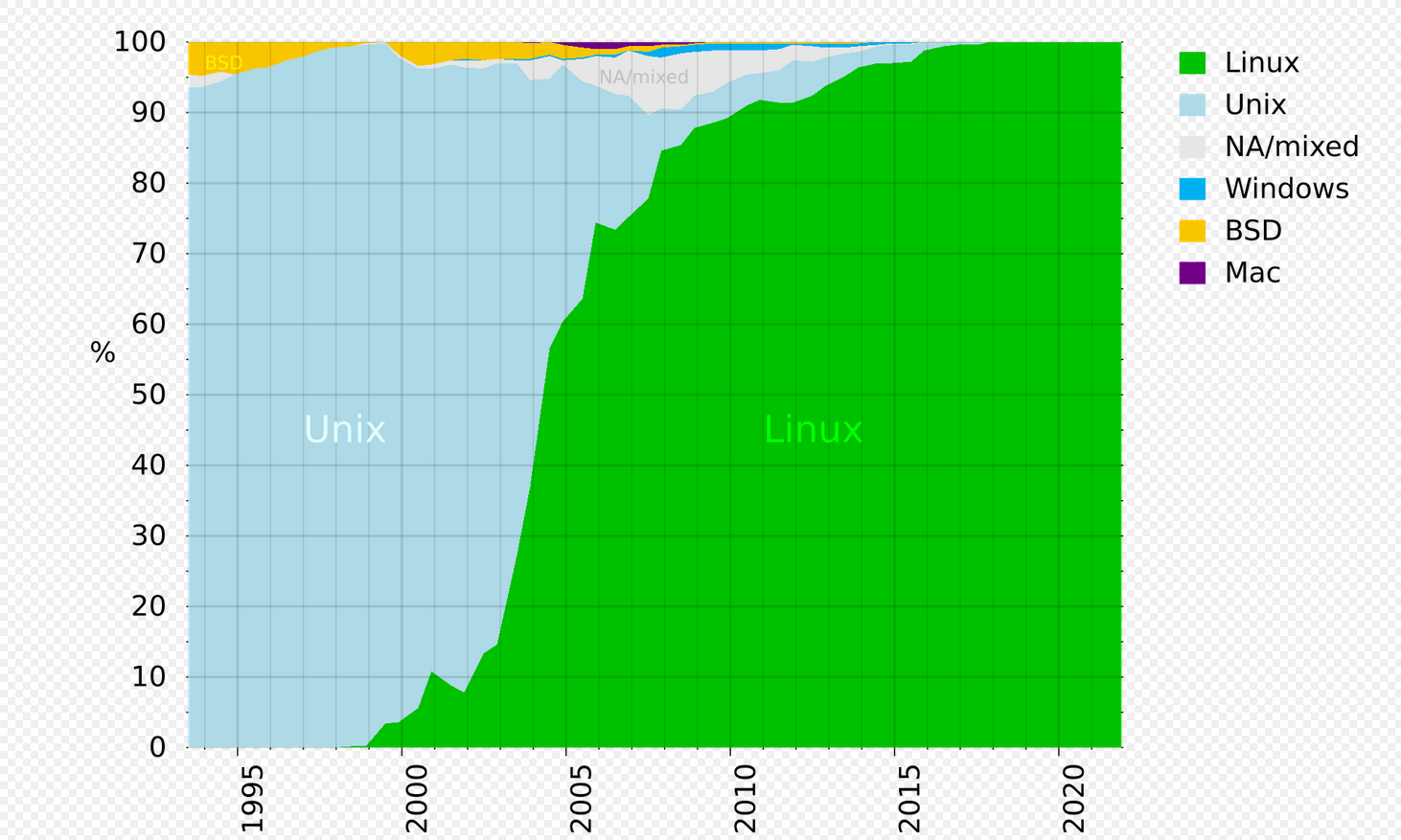Can we get a source for this image?
Sure. Added it to the post.
We're gonna take the test, and we're gonna keep taking it until we get one hundred percent in the bitch!
I’m confused on why they separate BSD from Unix. BSD is a Unix variant.
To make it more specific I guess, what's the problem with that? It's like having a "people living on boats" and "people with no long term address". You could include the former in the latter, but then you are just conveying less information.
Just need to do a dnf update on them all...
This looks impressive for Linux, and I’m glad FLOSS has such an impact! However, I wonder if the numbers are still this good if you consider more supercomputers. Maybe not. Or maybe yes! We’d have to see the evidence.
I wonder if the numbers are still this good if you consider more supercomputers.
Great question. My guess is not terribly different.
"Top 500 Supercomputers" is arguably a self-referential term. I've seen the term "super-computer" defined whether it was among the 500 fastest computer in the world, on the day it went live.
As new super-computers come online, workloads from older ones tend to migrate to the new ones.
So my impression is there usually aren't a huge number of currently operating supercomputers outside of the top 500.
When a super-computer falls toward the bottom of the top 500, there's a good chance it is getting turned off soon.
That said, I'm referring here only to the super-computers that spend a lot of time advertising their existence.
I suspect there's a decent number out there today that prefer not to be listed. But I have no reason to think those don't also run Linux.
Any idea how it'd look if broken down into distros? I'm assuming enterprise support would be favoured so Red Hat or Ubuntu would dominate?
Linux
From Wikipedia, the free encyclopedia
Linux is a family of open source Unix-like operating systems based on the Linux kernel, an operating system kernel first released on September 17, 1991 by Linus Torvalds. Linux is typically packaged in a Linux distribution (or distro for short).
Distributions include the Linux kernel and supporting system software and libraries, many of which are provided by the GNU Project. Many Linux distributions use the word "Linux" in their name, but the Free Software Foundation uses the name GNU/Linux to emphasize the importance of GNU software, causing some controversy.
Rules
- Posts must be relevant to operating systems running the Linux kernel. GNU/Linux or otherwise.
- No misinformation
- No NSFW content
- No hate speech, bigotry, etc
Related Communities
Community icon by Alpár-Etele Méder, licensed under CC BY 3.0
